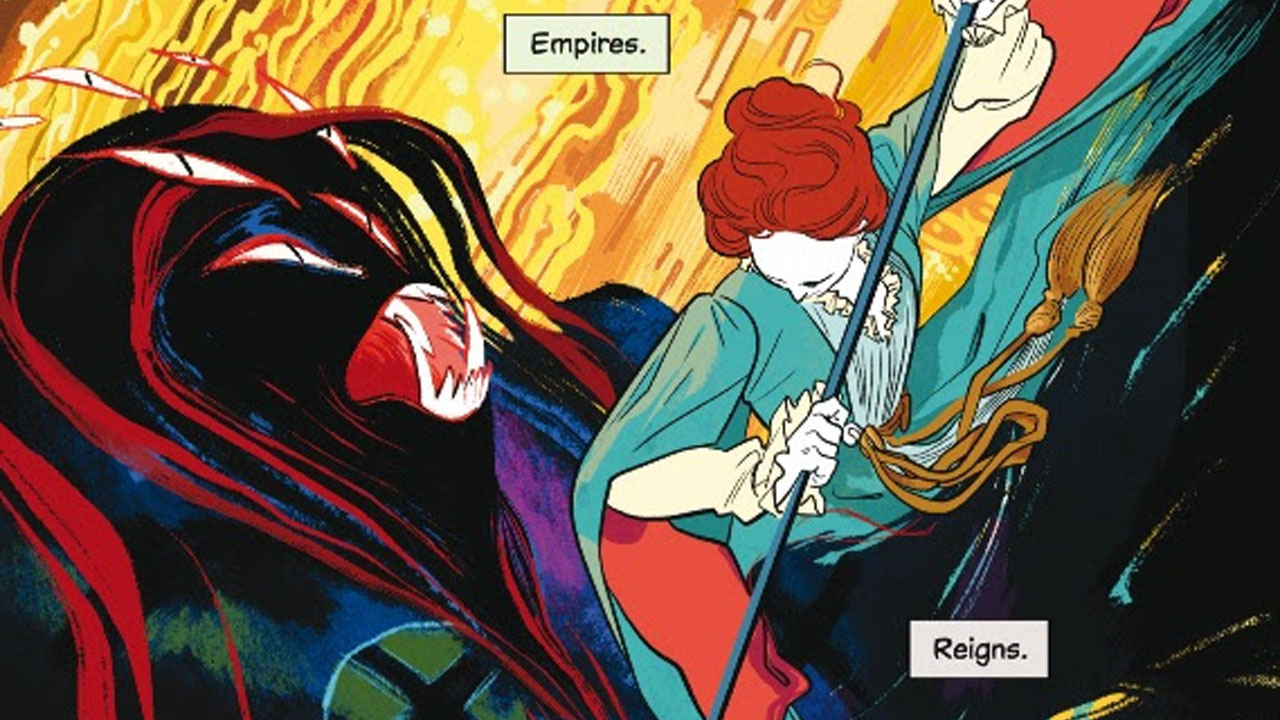
Dracula has been reimagined in countless scenarios, but never quite like Image Comics' upcoming OGN Dracula, Motherf**ker. This Quentin Tarantino-esque take on the King of Vampires takes the horror, bloodlust, and domineering control issues of Bram Stoker's original character and brings him into the heady days of '70s Hollywood.
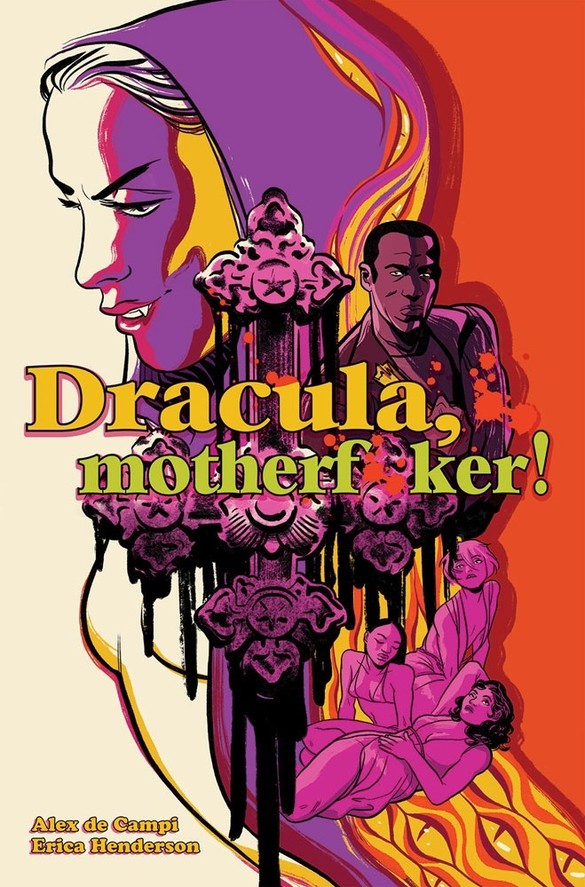
Scheduled to debut October 7, Alex de Campi and Erica Henderson's Dracula, Motherf**ker follows an aging screen starlet as she sets to reignite her career by reigniting the undead life of Dracula some 100 years after he was nailed to his coffin by his once-loyal brides.
De Campi spoke with Newsarama ahead of the book's launch about her and Henderson's take on Dracula, the theme of powerful men in society, and the deeper exploration of horror they've undertaken.
Newsarama: Alex, before we get started talking about the details of Dracula Motherf**ker when did the idea initially start?
Alex de Campi: In a 2016 twitter exchange between me and the artist Chris Cooper (a.k.a. Coop). For the past several years I’ve been involved in big graphic novel projects, 250 pages, or more. I started writing short, sharp exploitation-horror stories around the margins of those big books, just to blow off steam and have fun. Artyom Trakhanov is working on one; Maria Nguyen on another.

Dracula, Motherf**ker was part of that — I had the name, which always amused the daylights out of me, and then from there I started poking around at Gothic horror and specifically the Dracula tradition to see what I could do with it. This is the result.
Nrama: One thing I thought was interesting was that Dracula wasn't this man, but here he's like a force of dark nature almost. Something intangible but horrifying.
Get the best comic news, insights, opinions, analysis and more!
In the back matter, you talk about inspirations and the visuals you wanted to go for, why was it important to show Dracula in this way instead of like another Peter Cushing or Bela Lugosi carbon copy?
De Campi: Oh god, why do anything that’s been done before? Beyond the fact that, as per Cocteau’s Orphée, all any of us are doing are writing down our own misheard versions of the words of our dead predecessors. Look, it’s not the man that’s scary. Look at powerful men. They’re almost all just laughably unattractive.
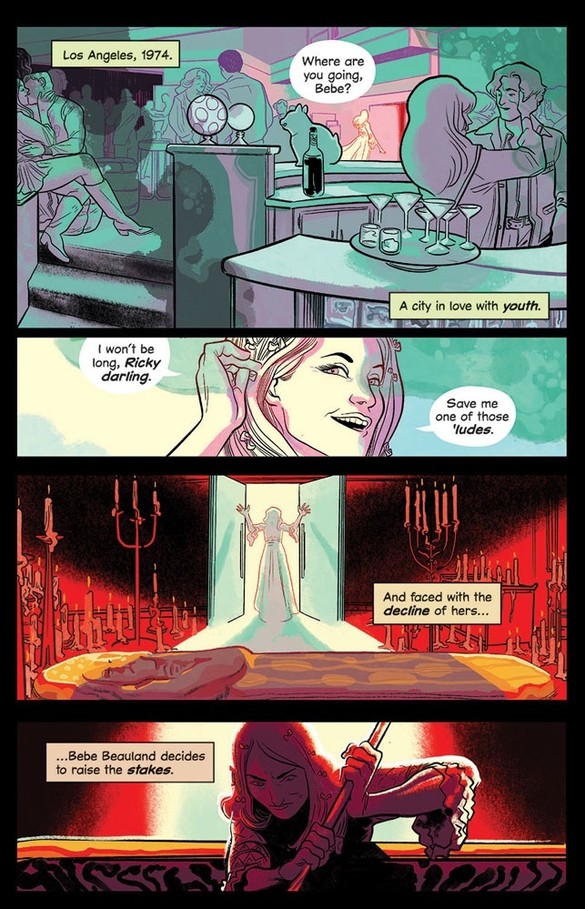
It’s the power itself that’s terrifying, so I wanted to distill Dracula to that.
A more disembodied, inchoate evil is something a lot of Japanese horror manga and anime have played with very successfully, and it felt right to do in this context.
Nrama: Let's talk about Quincy Harker because the name in Stoker's novel, he's mentioned in a note at the end being Jonathan and Mina's son. He's named after all four members of the Dracula hunting party and we're never really sure of his fate. Here, he's like a paparazzo vulture, surviving (professionally) off the dead with crime scene photos.
You mentioned it's more of a riff than anything, but just like Jonathan, he stumbles upon vampires while essentially on the job. What would you say they also had in common? Maybe their biggest differences?
De Campi: The parallel was more between Dracula and Quincy than Jonathan and Quincy.
Quincy is another nocturnal creature, in a real way living off Los Angeles’ dead. No close friends; nobody to miss him if he vanishes. Anyone who works night shifts knows what a weird displacement it is to be up when everyone else is down, and vice versa. It’s distancing in itself, even more before the advent of social media.
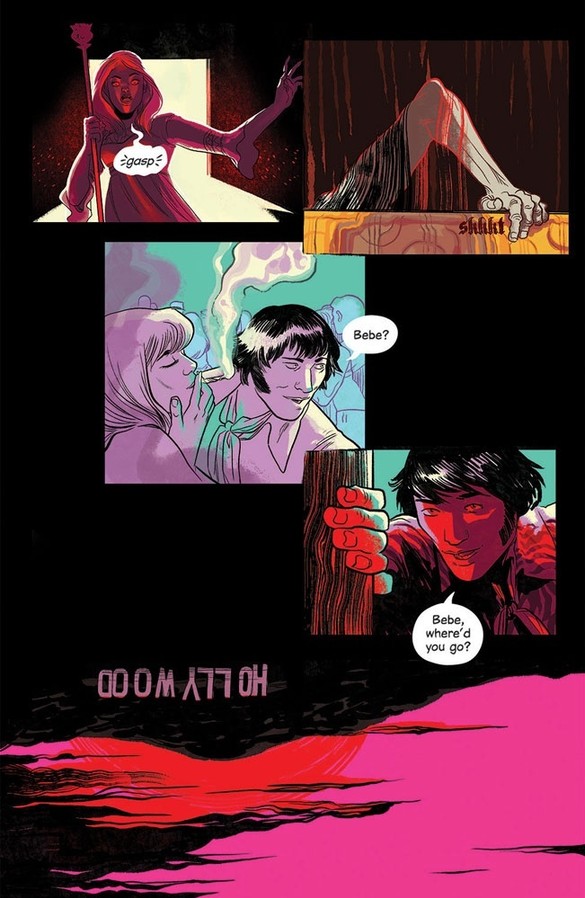
I don’t want to go into a long literary discussion of Jonathan Harker because I don’t want people to feel like they have to be familiar with Stoker’s book before reading Dracula, Motherf**ker, because they absolutely don’t.
Nrama: Setting this in LA in the '70s had me feeling it more like a throwback action movie with maybe some The Shiver of the Vampires mixed in for those colors, but at the same time, it's also a love story in the worst way. How do you see this story?
De Campi: It’s a story about power.
Nrama: Much like Dracula the book, Dracula, Motherf*cker is self-contained as well, but did you ever think this could have been an ongoing series instead of a one-shot OGN?

De Campi: Sure, it could be. But I never saw it as an ongoing.
I have big books. I don’t need another big book. I wanted a short, sharp book that could be a little laboratory for Erica and I to experiment with aspects of visual storytelling, and that wouldn’t be a burden on her in terms of length or time commitment.
Nrama: Alex, you put a page of the script in the back, I've seen writers compare that to showing off a page from their diary. Obviously you're comfortable with that, but what was it about this page you wanted to print?
De Campi: Simply that Erica had shown her color pencils/layouts for that particular page earlier in her notes, and it was a script page where I didn’t swear too much or say anything too weird.
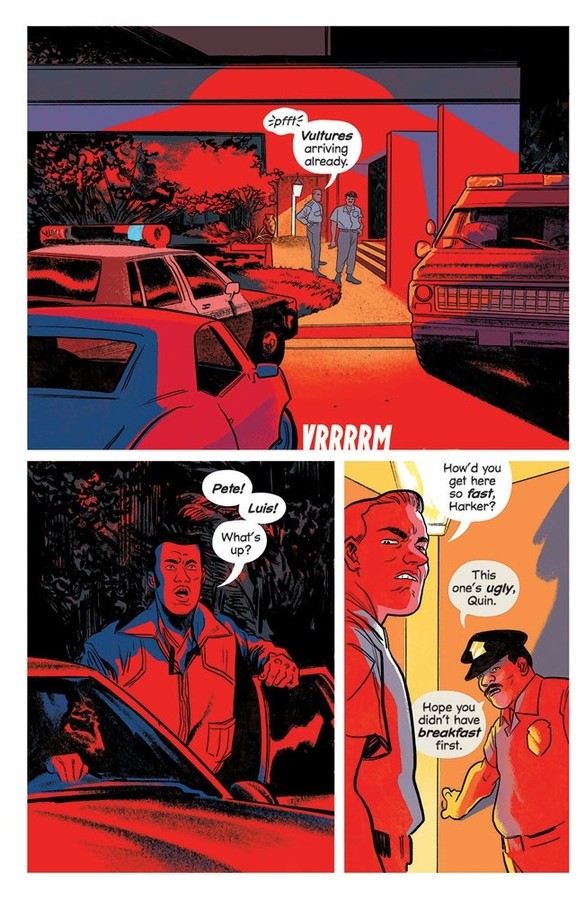
Nrama: What does the character Dracula mean to you?
De Campi: [Laughs]
That’s more or less the entire point of the book; folks can read it, then they’ll know.
Nrama: Are there other horror icons and aspects you'd like to reimagine or explore?
De Campi: I mean, I’ve done my Grindhouse books, and Semiautomagic was a lot of horror exploration. Yeah, the iconography of horror is something I have already explored extensively and will continue to do. I shall amuse myself with terror...
Lan Pitts likes watching, talking, and writing comics about wrestling. He has mapped every great taco spot in the DC and Baltimore areas. He lives with his partner and their menagerie of pets who are utterly perfect in every way.


